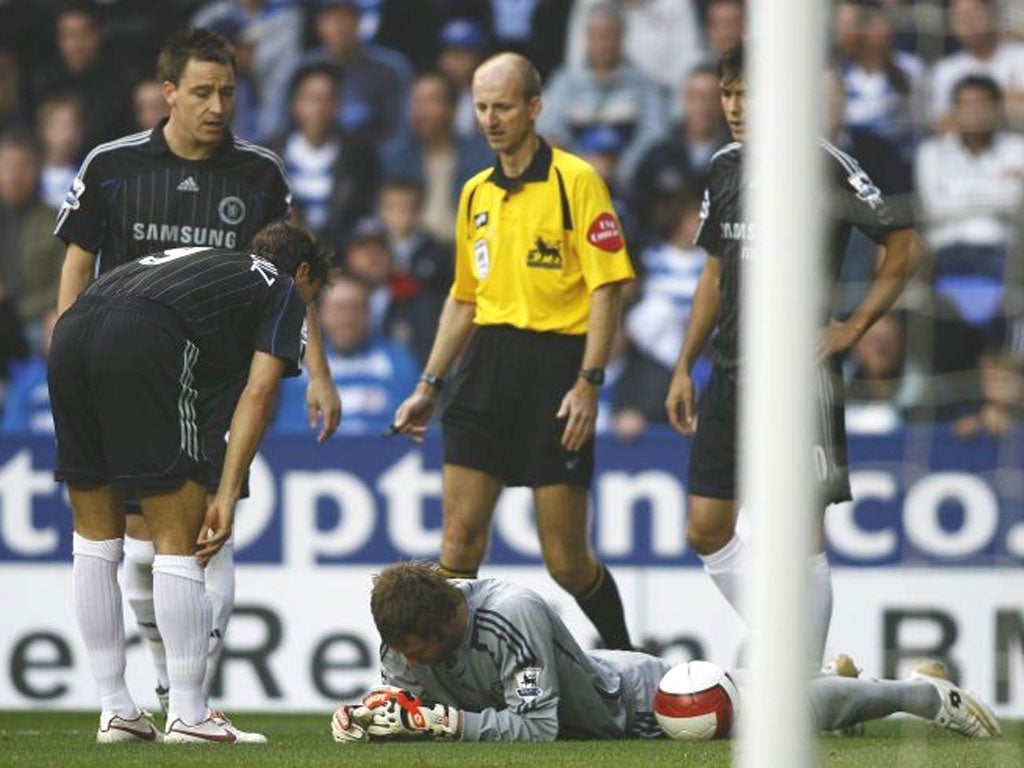Mourinho to thank for rapid response at the Lane

Fabrice Muamba's heart failure on the White Hart Lane pitch has revealed the near impossibility of predicting every such catastrophe. It occurred despite every professional player undergoing annual heart screenings since a series of deaths in the early 1990s.
The Professional Footballers' Association, which has funded the screening regime run in conjunction with the FA since 1992, said yesterday that heart defects had been detected and treated in four players in recent years, though Muamba's case reveals that there can be no guarantees. "It's not always possible to pick up every problem," said PFA chief executive Gordon Taylor.
The PFA has engaged the eminent cardiologist Dr Len Shapiro, of Papworth Hospital, near Cambridge, to ensure that players are screened for the kind of problems which killed schoolboy player John Marshall the day before he was due to sign for Everton in 1995.
The death of Terry Yorath's son, Daniel, in 1992 as well as York City's David Longhurst in 1990 were instrumental in the PFA seeking to grasp the issue. But the lack of guarantees was revealed in the death of the former Wales and Swansea City player Robbie James, who collapsed while playing for Llanelli in 1998 after what was later found to be the most common heart defect, cardiomyopathy. Anton Reid, a 16-year-old with Walsall, died during a training session in 2007 and Motherwell's Phil O'Donnell died during a game against Dundee United the same year.
The heart screening regime, now a part of Uefa rules, also includes cardio-pulmonary respiration tests, run through the Royal College of Surgeons. There are negatives attached to the system: defects have on occasions meant a club deciding to part company with a young player, or a player's parents being deeply opposed to him continuing in the sport, if a defect is found. The PFA view is that no risk can be taken.
Though there was a sense of desperation at the PFA yesterday that another player had gone undetected, the speed with which Muamba was dealt with on the White Hart Lane turf reveals how the system has been improved since Chelsea manager Jose Mourinho complained bitterly about the treatment of Petr Cech after the head injury he sustained against Reading at the Madejski Stadium in 2006.
Mourinho's claim that "my goalkeeper was in the dressing room for 30 minutes waiting for an ambulance" prompted an official complaint by the club to the Football Association and Premier League and led to the league's stipulation that an ambulance be located at grounds for exclusive use of players. Since then, the home club must also have available defibrillators and other medical equipment.
The Premier League yesterday said that its rules also stipulate that all players must undergo annual medical examinations which would lead to follow-up cardiac analysis if anything showed up. All players who train with England representative teams must also undergo cardiac screening. Muamba represented England at Under-16, 17, 18, 19 and Under-21 level.
Subscribe to Independent Premium to bookmark this article
Want to bookmark your favourite articles and stories to read or reference later? Start your Independent Premium subscription today.

Join our commenting forum
Join thought-provoking conversations, follow other Independent readers and see their replies